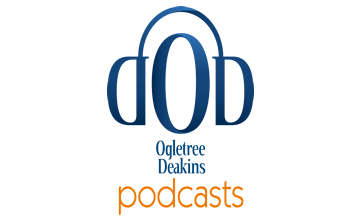Podcast: Play in new window | Download (Duration: 22:54 — 31.5MB) | Embed
Subscribe: Apple Podcasts | Spotify | TuneIn | More
In this installment of our Safety Perspectives From the Dallas Region podcast series, shareholders Frank Davis (Dallas) and John Surma (Houston) discuss the Occupational Safety and Health Administration’s (OSHA) new Severe Injury Reports (SIR) dashboard. John and Frank review the evolution of workplace injury record-keeping and reporting requirements, including deadlines and penalties. They also cover how the SIR dashboard’s data collection, along with its increased availability and accessibility to the public, may impact employers.
